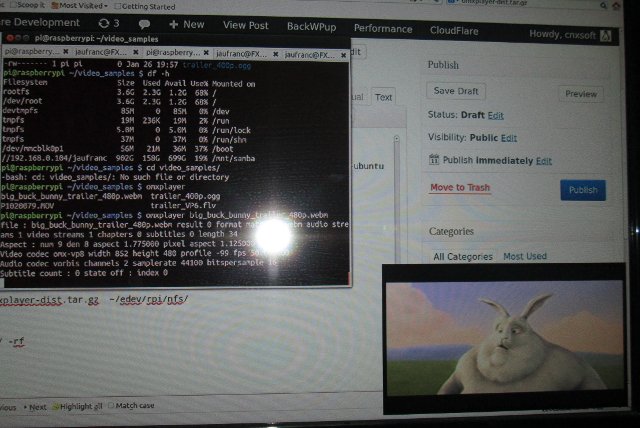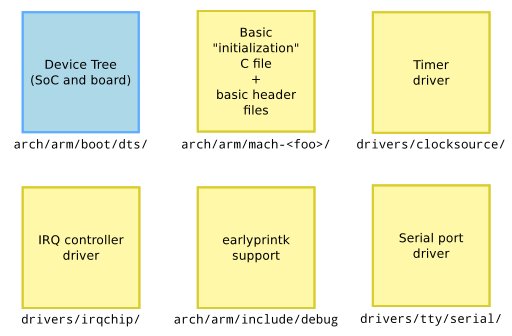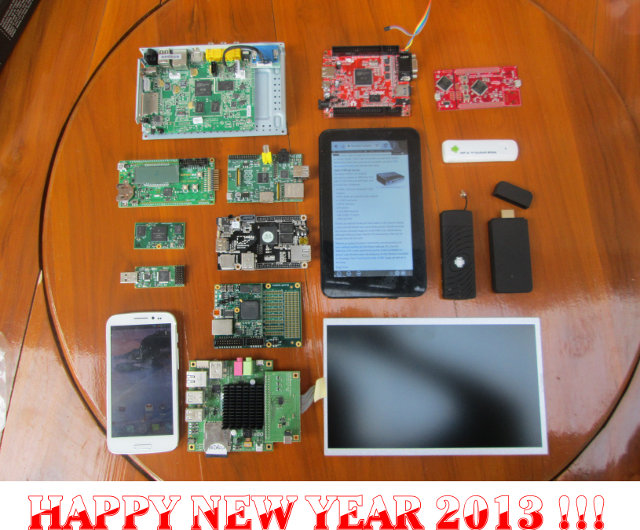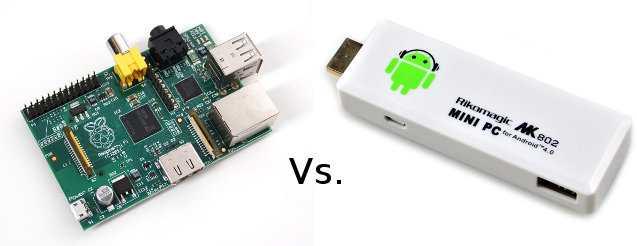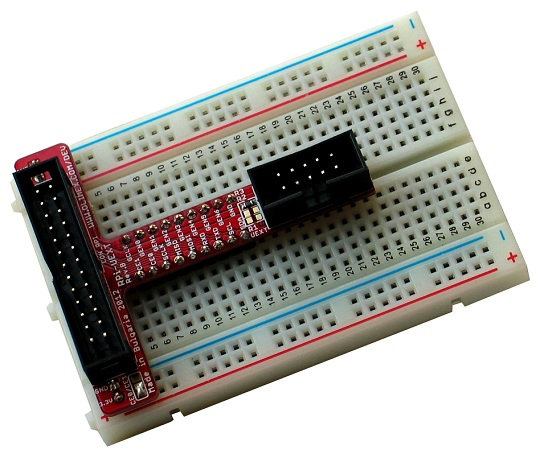The guys working on the Raspberry Pi (mainly dom) have added preliminary support for VP6, VP8, MJPEG, and Ogg Theora free video codecs, as well as Ogg Vorbis audio codec. Unlike H.264, MPEG-2 and VC1, those are not handled by the hardware video decoder in Broadcom BCM2835 processor, but are accelerated by the Videocore GPU. This means that only SD (and possibly 720p) videos are supported for those codecs. The best way to get support is probably to patiently wait for the Raspberry Pi foundation to release a new Raspbian image, but in case you couldn’t possibly wait, here are the steps to follow: Download and run Hexxeh’s rpi-update script in the Raspberry Pi in order to get the very latest build:
|
1 2 3 |
wget https://github.com/Hexxeh/rpi-update/raw/master/rpi-update chmod 755 rpi-update sudo ./rpi-update |
Add the following two lines to /boot/config.txt:
|
1 2 |
start_file=start_x.elf fixup_file=fixup_x.elf |
Reboot the Raspberry Pi The GPU firmware is now updated, but you still need the latest version of omxplayer. […]


